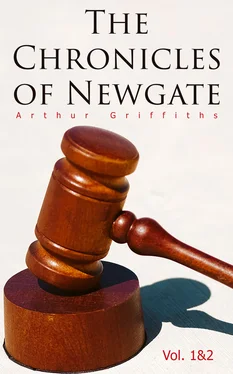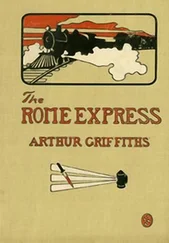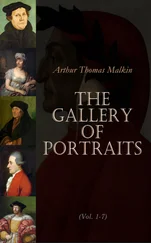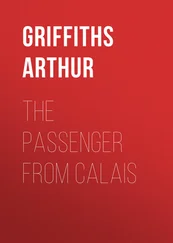The crimes of the latter half of the seventeenth century are of the same character as those of previous epochs. Many had, however, developed in degree, and were more widely practised. The offence of clipping and coining had greatly increased. The extent to which it was carried seems almost astounding. The culprits were often of high standing. A clipper, by name White, under sentence of death, was reprieved by the king upon the petition of the House of Commons in order that a committee of the House might examine him in Newgate as to his accomplices and their proceedings. Accordingly, White made “a large discovery” to the committee, both of clippers and coiners, and particularly of Esquire Strode, who had been a witness at the trial of the Earl of Bath (1697). Luttrell says (1696), among twenty persons convicted of coining was Atkinson, the beau “that made such a figure in town about eight years before, and spent an estate of £500 per annum in Yorkshire.” In the lodgings of a parson, by name Salisbury, who was arrested for counterfeiting stamped paper, several instruments for clipping and coining were found. University men were beguiled into the crime of clipping; so were seemingly respectable London tradesmen. Goldsmiths and refiners were repeatedly taken up for these malpractices. “A goldsmith in Leicester Fields and his servants committed to Newgate for receiving large quantities of broad money from Exeter to clip it.”[68] “A refiner’s wife and two servants committed to Newgate for clipping; the husband escaped.” Bird, a laceman, in custody for coining, escaped; but
Newgate (1700).
3rd Floor.
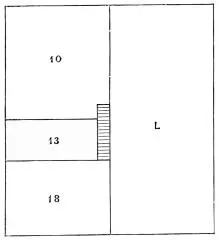
| L. The Chapel. |
10. High Hall. 13. Women’s Ward. (Debtors.) 18. Women’s 2nd Ward. (Felons.) |
surrendered and impeached others. Certain gilders committed to Newgate petitioned therefrom, that if released they would merit the same by a discovery of a hundred persons concerned in the trade. Such are the entries which appear time after time in contemporary chronicles.
The numbers engaged in these nefarious practices were very great. In 1692 information was given of three hundred coiners and clippers dispersed in various parts of the city, for several of whom warrants were issued, some by the Treasury, others by the Lord Chief Justice. The profits were enormous. Of three clippers executed at Tyburn in 1696, one, John Moore, the tripeman, was said to have got a good estate by clipping, and to have offered £6000 for his pardon. Three other clippers arrested in St. James’ St., and committed to Newgate, were found to be in possession of £400 in clippings, with a pair of shears and other implements. The information of one Gregory, a butcher, who “discovered” near a hundred persons concerned in the trade, went to prove that they made as much as £6000 a month in counterfeit money. “All their utensils and moulds were shown in court, the latter being in very fine clay, which performed with great dexterity.” The extent of the practice is shown by the ingenuity of the machinery used. “All sort of material for coining was found in a house in Kentish town, with stamps for all coins from James I.” The work was performed “with that exactness no banker could detect the counterfeit.” So bold were the coiners, that the manufacture went forward even within the walls of Newgate. Three prisoners were taken in the very act of coining in that prison. One of the medals or tokens struck in Newgate as a monetary medium among the prisoners is still to be seen in the Beaufoy Collection at Guildhall. Upon the obverse of the coin the legend is inscribed: “Belonging to the cellar on the master’s side, 1669;” on the reverse side is a view of Newgate and the debtors’ prison.
The heaviest penalties did not check this crime. The offence was high treason; men sentenced for it were handed, drawn, and quartered, and women were burnt. In 1683 Elizabeth Hare was burnt alive for coining in Bunhill Fields. Special legislation could not cope with this crime, and to hinder it the Lords of the Treasury petitioned the Queen (Mary in the absence of William III.) to grant no pardon to any sentenced for clipping unless before their conviction they discovered their accomplices.
Highway robbery had greatly increased. The roads were infested with banditti. Innkeepers harboured and assisted the highwaymen, sympathizing with them, and frequently sharing in the plunder. None of the great roads were safe: the mails, high officials, foreigners of distinction, noblemen, merchants, all alike were stopped and laid under contribution. The following are a few of the cases which were of constant occurrence. “His Majesty’s mails from Holland robbed near Ilford in Essex, and £5000 taken, belonging to some Jews in London.” The Worcester waggon, wherein was £4000 of the king’s money, was set upon and robbed at Gerard’s Gross, near Uxbridge, by sixteen highwaymen. The convoy, being near their inn, went on ahead, thinking all secure, and leaving only two persons on foot to guard it, who, having laid their blunderbusses in the waggon, were on a sudden surprised by the sixteen highwaymen, who took away £2,500. and left the rest for want of conveniences to carry it.” Two French officers (on their way to the coast) were robbed by nine highwaymen of one hundred and ten guineas, and bidden to go home to their own country. Another batch of French officers was similarly dealt with on the Portsmouth road. Fifteen butchers going to market were robbed by highwaymen, who carried them over a hedge and made them drink King James’ health. The Portsmouth mail was robbed, but only of private letters; and the same men robbed a captain going to Portsmouth with £5000 to pay his regiment with. Three highwaymen robbed the Receiver-General of Bucks of a thousand guineas, which he was sending up by the carrier in a pack; the thieves acted on excellent information, for although there were seventeen packhorses, they went directly to that which was laden with the gold. Seven on the St. Alban’s Road near Pinner robbed the Manchester carrier of £15,000 king’s money, and killed and wounded eighteen horses to prevent pursuit. The purser of a ship landed at Plymouth and rode to London on horseback, with £6000 worth of rough diamonds belonging to some London merchants which had been saved out of a shipwreck. Crossing Hounslow Heath, the purser was robbed by highwaymen. “Oath was thereupon made before a justice of the peace,” says Luttrell, in “order to sue the Hundred for the same.” The Bath coach was stopped in Maidenhead thicket, and a footman who had fired at them was shot through the head. The Dover stage coach, with foreign passengers, was robbed near Shooter’s Hill, but making resistance, one was killed. The western mail was robbed by the two Arthurs, who were captured and committed to Newgate. They soon escaped therefrom, but were again arrested at a tavern by Doctors’ Commons, being betrayed by a companion. They confessed that they had gone publicly about the streets disguised in Grecian habits, and that one Ellis, a tobacconist, assisted them in their escape, for which he was himself committed to Newgate. John Arthur was soon afterwards condemned and executed. Henry Arthur was acquitted, but soon after quarrelling about a tavern bill in Covent Garden, he was killed in the mêlée .
All manner of men took To the road. Some of the Royal guards were apprehended for robbing on the highway. Lifeguardsmen followed the same gentlemanly occupation when on duty. “Thompson, a lifeguardsman, committed on suspicion of robbing Welsh drovers, is refused bail, there being fresh evidence against him.”[69] Captain Beau, or Bew, formerly of the Guards, was seized at Knightsbridge as a highwayman, and afterwards poisoned himself. Seven of his gang were committed to Newgate. Harris, ‘the lifeguardsman’ tried at the Old Bailey for robbing on the black mare and acquitted, was again tried a month later, and condemned. He was then reprieved, and Sir William Penn obtained the Queen’s pardon for him, and a commission as lieutenant in the Pennsylvania Militia, to which colony he was to transport himself. Persons of good social status engaged in the perilous trade. One Smith, a parson and a lecturer at Chelsea, when brought up at Westminster for perjury, was found to be a confederate with two highwaymen, with whom he had shared a gold watch, and planned to rob Chelsea Church of its plate. Smith when arraigned appeared in Court in his gown, but he was “sent to Newgate, and is like to be hanged.” Disguised highwaymen were often found in reputable citizens and quiet tradesmen, who upon the surface seemed honest folk. A mercer of Lombard Street was taken out of his bed and charged by a cheesemonger as being the man that rubbed him two years previously. Another mercer was taken up near Ludgate on suspicion of being a highwayman, and committed. Saunders, a butcher of St. James’ market, was charged with robbing the Hampton coach, and discovered three confederates, who were captured on Sunday at Westminster Abbey. “Two highwaymen taken near Highgate, one of whom was said to be a broken mercer, the other a fishmonger.” Two of Whitney’s gang were said to be tradesmen in the Strand—one a goldsmith and one a milliner.
Читать дальше
